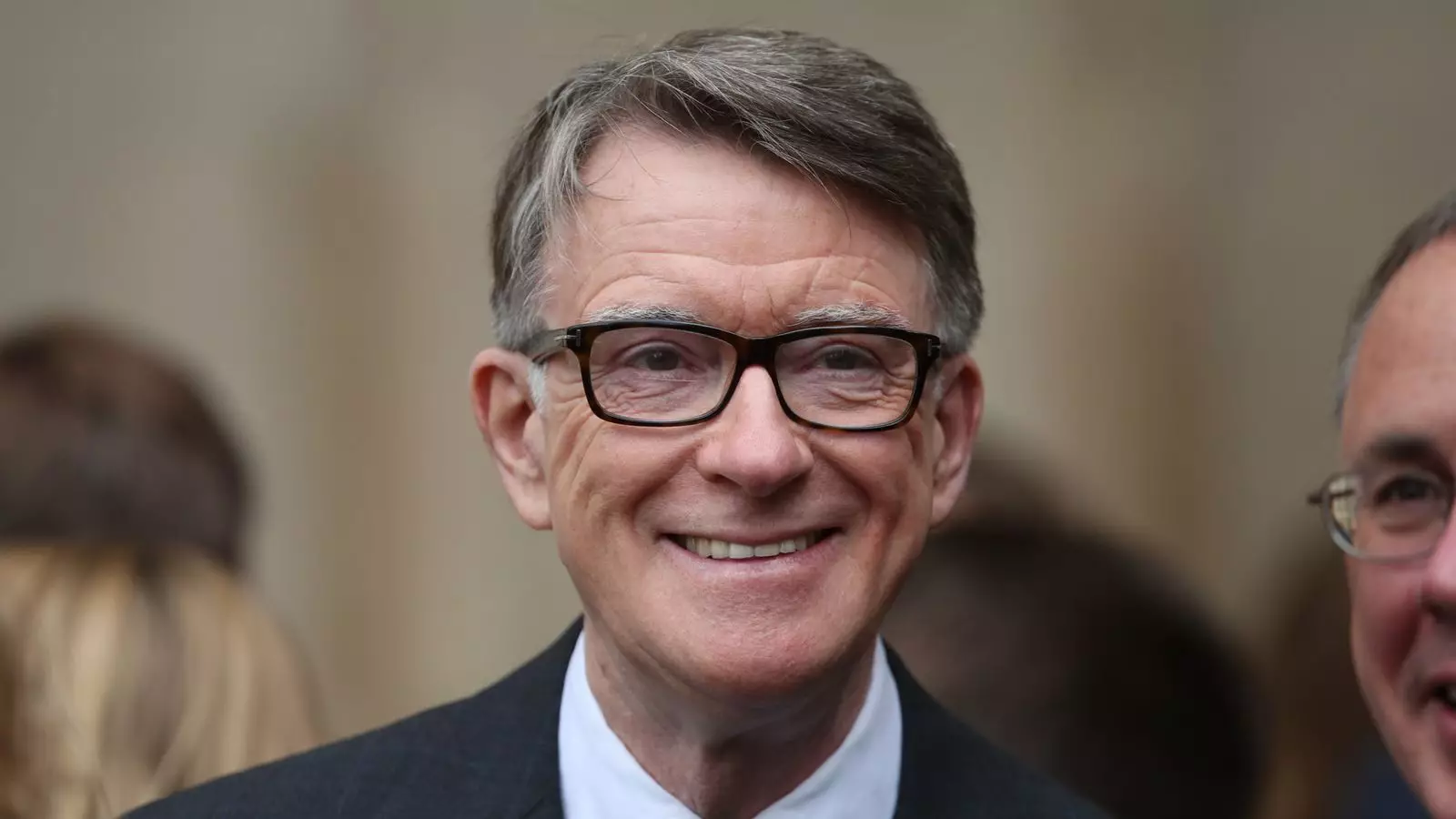The announcement of Lord Mandelson as the new UK ambassador to the United States has stirred a notable frenzy among political commentators and officials, particularly in light of the historically antagonistic remarks he has made about former President Donald Trump. Chris LaCivita, co-manager of Trump’s election campaign, was quick to express his dismay, labeling Mandelson an “absolute moron” on social media. This direct clash underscores the current volatility in UK-US relations as both nations prepare for another chapter in their diplomatic saga with President-elect Trump anticipated to return to the White House.
LaCivita’s remarks were aimed at highlighting the contrasting views and political positions that epitomize the current climate. Given Lord Mandelson’s previous declarations, wherein he labeled Trump as “a danger to the world” and “little short of a white nationalist,” the tension is palpable. This backdrop of criticism raises questions about how such sentiments would influence diplomatic interactions moving forward, particularly as the UK continues to navigate its post-Brexit identity on the global stage.
The Significance of Lord Mandelson’s Experience
Despite the uproar surrounding his appointment, there is no denying Lord Mandelson’s extensive experience within the realms of policy and diplomacy. Having been a central figure in the New Labour movement, he has held high-profile positions including Secretary of State for Trade and Industry and Secretary of State for Northern Ireland. His expertise is expected to play a critical role as he aims to forge crucial partnerships and enhance the UK’s standing in one of its most significant relationships.
Prime Minister Rishi Sunak praised Mandelson’s experience, emphasizing the importance of the U.S. as a strategic ally. The Prime Minister stated that Mandelson’s seasoned background is crucial as they engage with a new chapter in US-UK relations. Analysts speculate that Mandelson will leverage his historical ties and political acumen to maximize collaborative opportunities, especially concerning economic growth and security challenges.
Sir Keir Starmer’s backing of Mandelson’s appointment is indicative of a divided landscape, particularly among Labour Party members. As Starmer publicly applauds Mandelson’s capabilities, his acceptance is not universally embraced within Labour’s leftist factions, which could create further internal struggles. This dynamic could hinder Starmer’s ability to unify the party at a critical juncture, especially as they critique the potential policies of a reigning Trump administration.
The outgoing ambassador, Dame Karen Pierce, also received commendation from Starmer, highlighting her contributions to reinforcing UK interests within the U.S. as the first female ambassador in this role. As Mandelson steps in, the transitional period will be scrutinized closely, and success in this position may require deft navigation of both external and internal party politics.
As the UK embarks on this new diplomatic journey under Mandelson’s guidance, the divergent political ideologies will certainly influence bilateral engagements. The past animosities from both sides may lead to complications during negotiations on pressing global issues such as climate change, trade agreements, and international security.
Moreover, Mandelson’s appointment may resonate well within traditional United Kingdom political circles but could further alienate those who advocate for a more progressive international approach. Observers will be particularly keen to see how he balances the expectations from both the UK government and the broader U.S. diplomatic framework shaped by Trump’s controversial policies.
The diplomatic relationship between the UK and the U.S. stands at a crucial juncture with the appointment of Lord Mandelson. His seasoned experience and political acumen could potentially reinforce ties, but the historical resentments also loom large. What remains clear is that the road ahead will require careful maneuvering, strategic partnerships, and a clear articulation of how past grievances will be reconciled in pursuit of mutual interests. As both nations navigate these complexities, the question of whether Lord Mandelson can effectively bridge these divides will unfold in the months ahead.

Leave a Reply